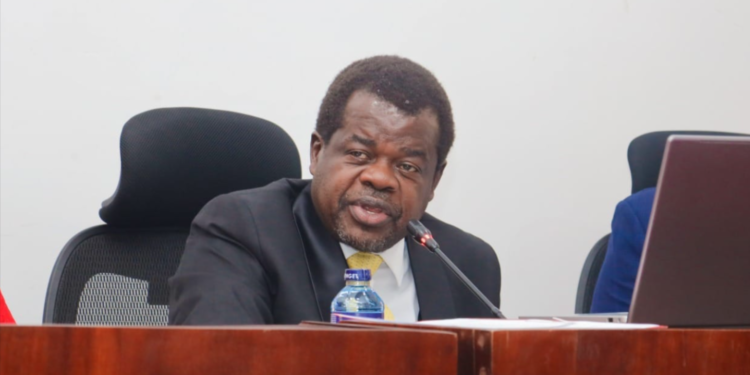Following the Supreme Court’s decision to uphold the Finance Act 2023, Senator Okiya Omtatah has stated that while he disagrees with the court’s reasoning, the ruling is “right because it is the final decision,” adding that Kenyans must accept it for the sake of stability.
The Supreme Court ruling, issued on October 29, ended months of intense debate over the Finance Act, which sets tax and spending policy for the coming fiscal year and has been mired in controversy over issues of public participation and constitutional compliance.
Appearing on Citizen TV alongside Senior Counsel Charles Kanjama, Omtatah expressed frustration, stating, “The court had a mindset, and it went ahead to achieve it by meandering around and making some very elastic arguments.” His comment alluded to what he perceives as judicial flexibility in justifying the legality of a bill that he believes was flawed due to limited public involvement. According to Omtatah, “If public participation in processes is cosmetic, what is the Supreme Court telling Kenyans? It is telling us that what the Gen Zs did when they stormed Parliament is the way forward, and that is why some of us are resisting.”
The controversy surrounding the Finance Act began shortly after it received Presidential assent on June 26. The Act faced numerous legal challenges, including concerns over inadequate public participation and claims that sections of the Act were amended without the necessary consultations. These issues led to a ruling in the High Court, where specific sections were deemed unconstitutional. The case then progressed through the Court of Appeal before reaching the Supreme Court.
In its ruling, the Supreme Court acknowledged the importance of public participation in legislative processes but argued that due to time constraints associated with budgeting and fiscal planning, it is sometimes impractical to reinitiate public input. Counsel Charles Kanjama explained, “The Supreme Court has said that there should be a bill passed into law to clarify how public participation is done.” He emphasized that Kenya’s legal system permits judicial decisions, even when controversial, stating, “Our legal system recognizes that judges have a right to be wrong so long as they are wrong in good faith.”
However, Omtatah’s skepticism extended beyond the court’s ruling. He questioned the consistency of the judiciary’s approach to transparency, arguing that while the Executive and Legislature are obligated to engage the public, the Judiciary often avoids similar scrutiny. “The Legislature and the Executive have been subjecting themselves to public participation, but the Judiciary has never,” he remarked. Omtatah added that a reform in judicial transparency could offer the public a more active role in overseeing judicial processes, which could boost public confidence in the system.
Omtatah also highlighted issues with the budget structure itself, arguing that the lack of revenue disclosure in the budget process creates opportunities for corruption. “A budget is an Act of Parliament. So, when we have budgets that do not disclose revenue, we are not having the full budget,” he said, indicating his view that the Finance Act lacked the transparency needed to account for public funds effectively.
Kanjama pointed to the Supreme Court’s call for a law to standardize public participation as a positive step, suggesting it could address similar constitutional disputes in the future. The Court’s judgment recommended that Parliament develop a legislative framework to regulate public involvement in the law-making process, aiming to eliminate ambiguities in participation and improve transparency.
Despite acknowledging the Court’s finality, Omtatah voiced concern over the potential for judicial biases in favor of the Executive, expressing frustration with what he characterized as undue influence over the highest court. “The Executive has a free hand to do as it wishes because it knows that you can win in all these lower courts, but up there, they are able to purchase the judges better,” he asserted. He suggested a shift in the judicial decision-making structure, advocating that each judge deliver individual judgments rather than what he described as the “choir-like” unanimity of the Supreme Court’s ruling.















